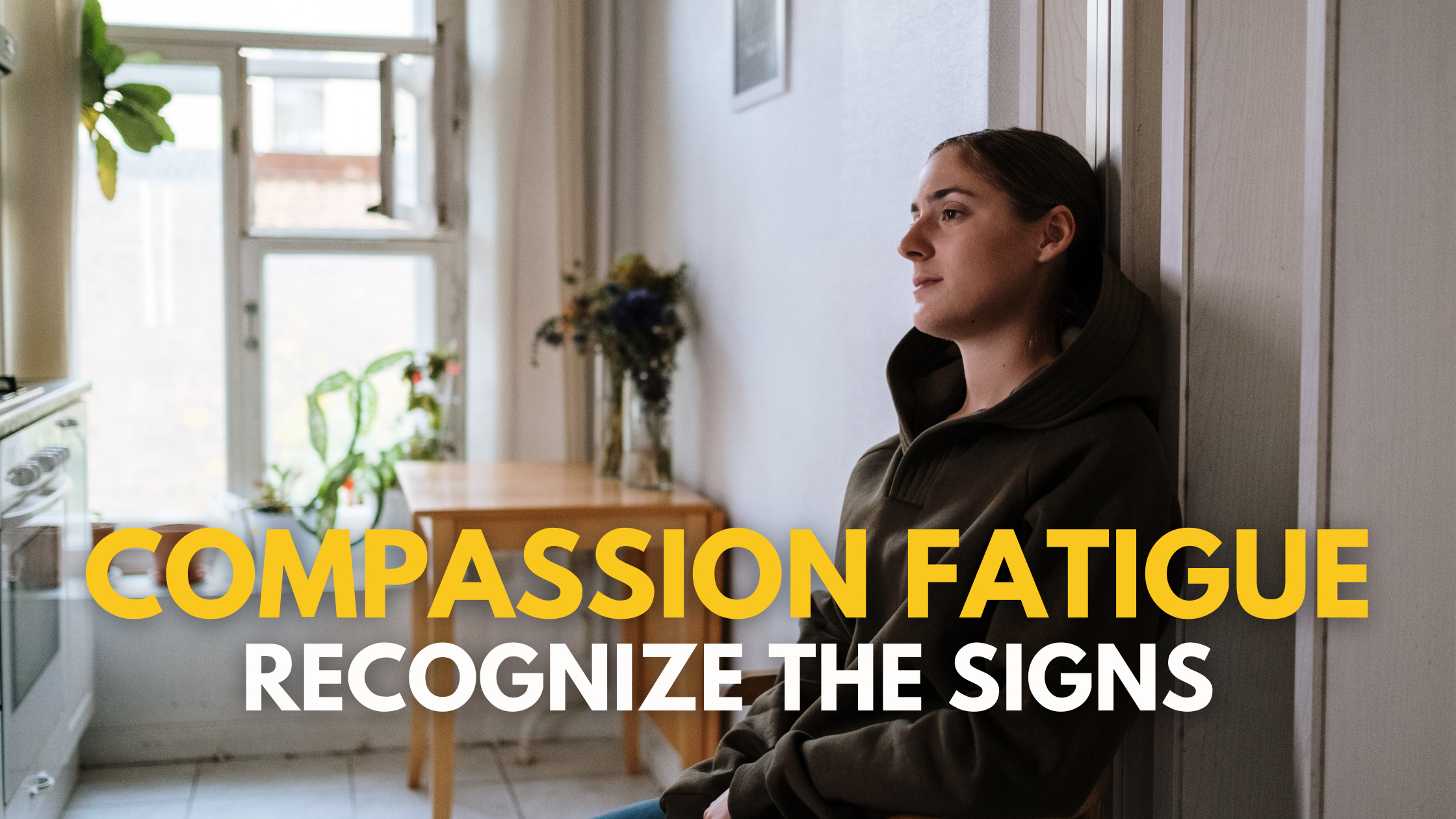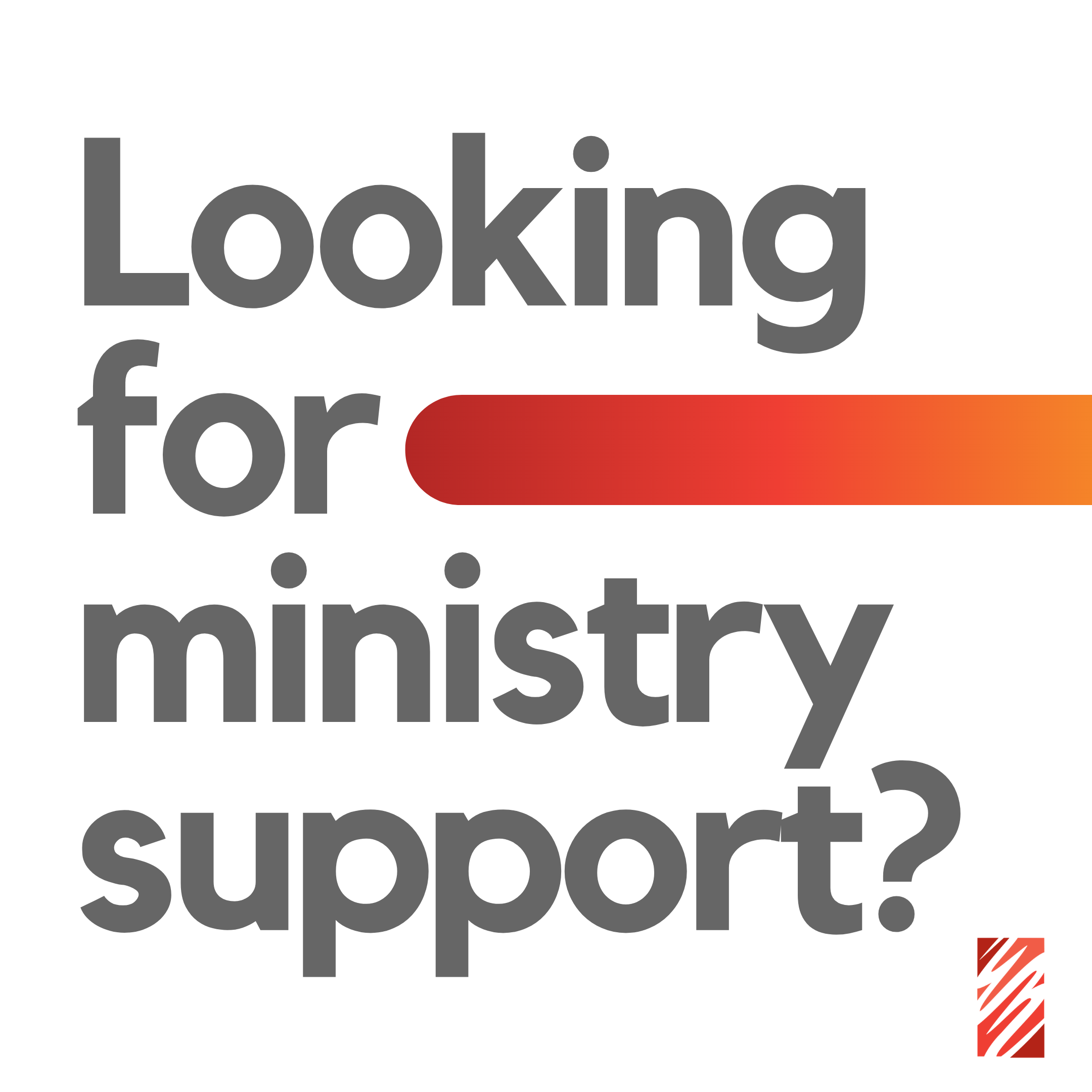You love this job.
You love the people with whom you get to work, and you love the Lord! So why do you feel like you cannot muster the empathy and sympathy to care as deeply as you should right now? You’re exhausted. I don’t mean sleep-deprived, which is completely possible, but you’ve found that your compassion is exhausted. Can you recognize the signs?
“Compassion Fatigue is a condition characterized by emotional and physical exhaustion leading to a diminished ability to empathize or feel compassion for others.”
source
Signs and symptoms of Compassion Fatigue can mirror Depression and/or PTSD and can include any of the following: Feeling helpless, hopeless, or powerless; irritability; feeling angry, sad, or numb; feeling detached; and/or experiencing a decreased pleasure in usual activities.
You may be thinking, “Maybe I am just burned out. That seems more likely.”
How do we know the difference between Compassion Fatigue and Burnout?
According to Barbara Rubel at the Griefwork Center, Inc., here is how you can tell the difference between Compassion Fatigue and Burnout:
Burnout is typically situational, and only attributed to a stressful work environment; Compassion Fatigue is the result of the impact of helping others, most typically through their trauma. So, could you possibly be experiencing both, especially during a prolonged pandemic? Yes!
This is your reminder to be gentle with yourself and those around you! Many who are in the helping profession or in ministry are deeply feeling the burdens and trauma of others, and as a result you are so good at this job! But you must care for yourself before you can care for others – think of the oxygen mask on the airplane analogy for instance – who do you place the oxygen mask on first? YOU!
Some strategies to combat Compassion Fatigue:
Pay attention to when you feel the most fatigued. What you have you been doing at work prior to this feeling? Begin to identify what drains your battery so that you can then strategize how and when to complete those tasks. This may help you give your all to them without depleting your compassion bank.
Journal about the good, bad, and ugly. Journaling is a safe, effective way to articulate all your feelings and frustrations and to get them out of your head. And you don’t have to worry about how you say something or how it will be received. Be unfiltered!
Take vacation or a day off if you can! Stepping away from the everyday grind can really help you restore your energy and excitement for your work. You started this job for a reason – try to remember what that is!
Schedule time for you. Ministry is a 24/7 calling, but you cannot function for long in that way. Be sure to schedule time that you are not working, not on your phone or social media, and doing things that are life-giving and restorative to you.
Ask for Help! Tell a safe person, like a coach, friend or counselor, who is not a co-worker, how you are feeling. Ask them to help you see the bigger picture and greater good of the work you are doing. Ask them to keep you accountable in taking time out for yourself.
Actively and intentionally remind yourself of the good you are doing in this job and in this world!
And here’s what might be the hardest strategy:
Set Boundaries for your Compassion. Before there were cell phones and social media, we only knew about bad things happening to people if we watched/read the news, or the situation was happening inside of our family or social circle. We now have access to everyone’s hurts all the time via social media – we see the devastating stories of strangers who die too young from cancer or who have suffered catastrophic loss and need help. It is not wrong to feel for all these people and situations, or to even respond with help; but if you don’t know the person or the people surrounding that person, but sure to set boundaries for your compassion and empathy. Don’t spend all your energy on strangers when you know you need to pour more of yourself into your family, friends, and the people with whom you work every day.
The great news is that you can combat Compassion Fatigue and get back to feeling excited about your calling – but you must actively work towards this! Remember to be gentle with yourself and take time to restore your energy. Set boundaries for yourself and others and be intentional in your everyday actions. This world needs you, especially now!

Mallory Even, LPMT, MT-BC, is a Board-Certified and Licensed Professional Music Therapist. She earned her degree in Music Therapy at The Florida State University, and has owned her private practice, Metro Music Therapy, which is based in Peachtree Corners, GA (NE Atlanta), for over 12 years. Mallory has a heart for using music to serve others, both professionally and personally, and has been a worship leader at various churches in Florida and Georgia throughout the last 20 years.
You can contact Mallory by sending her an email.



We Would Love to Hear Your Thoughts